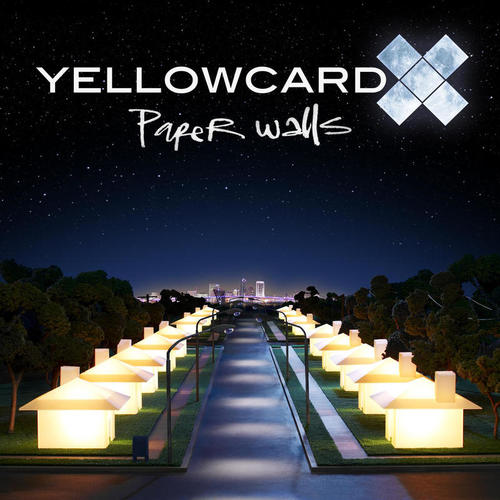
Paper Walls
Yellowcard is neither the flashiest nor the most popular among the new millennium's pop-punk bands but their fifth album Paper Walls goes a long way in proving that they are among the best of their breed. Despite violinist Sean Mackin, whose very presence can seem like a clever ploy (even as the instrument fades in prominence over the years), they're not attention-mongers — their pop is melodic but not incessantly hooky, they rock hard but not furiously. Without ever seeming laid-back, they seem casual in how they approach their music, never drawing attention to themselves, which is a bit odd because on pure musical terms they're more gripping than many of their peers, displaying a restless sense of musicality that often makes Paper Walls interesting even if means they can stray toward areas that are just a shade too indulgent for their own good. Often, those areas are quicksand pits of sentimentality, whether its drippy anthemic love songs and odes to grandparents ("Dear Bobbie"), sweeping gestures that come off as hammy due to the overdose of emotion but that same tendency to dive after a big moment pays off on the harder rockers where it gives the music true momentum. There's not just a purpose in their backbeat but they dance around the clichés of their genre, either by jacking up the overall energy quotient or suddenly exploding into metallic guitar solos — like the breakneck breakdown on the opening "The Takedown" — or strenuously writing melodies that strive for grandness, something that's evident even when they don't achieve their goal. Yellowcard works hard within the confines of their genre but they never rewrite rules: they push the boundaries a little bit further, just enough to separate themselves from their peers, but not quite enough to rope in listeners less dedicated to the super-slick sound of modern punk, especially because they lack one undeniable song to rope in the unconverted. Nevertheless, as a whole, it's hard not to listen to Paper Walls and be impressed by Yellowcard's vigorous musicality which does display more imagination than many of their peers even if the finished songs could stand hooks that dug slightly deeper.
